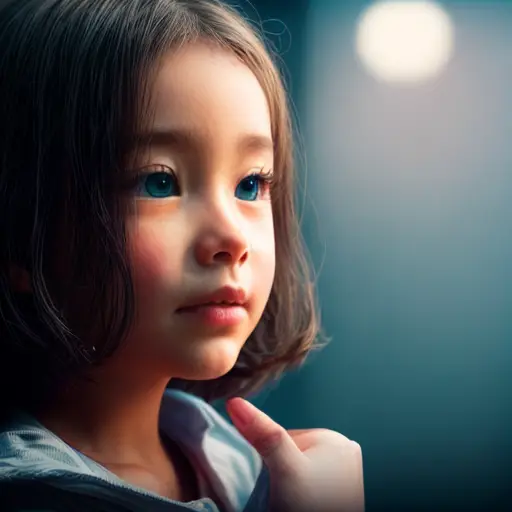The Foundations of Moral Development: Understanding the Basics
Alright, folks, let's dive into the fascinating world of moral development in child development. Picture this: a tiny human, fresh out of the oven, embarking on a journey to become a decent member of society. It's like watching a superhero origin story, but instead of acquiring superpowers, they're learning right from wrong. Moral development is all about how kids develop their ethical compass, their inner Batman, if you will. From the adorable toddler stage, where they're testing the boundaries of 'mine' and 'yours,' to the rebellious teenage years, where they question everything, it's a rollercoaster ride. So, buckle up, my friends, as we unravel the basics of this moral maze and discover how these little humans become the heroes we desperately need.
The Role of Parents and Caregivers in Nurturing Moral Development
An interesting fact about moral development in child development is that it is influenced by various factors, including cultural norms, parental guidance, and peer interactions. Research has shown that children's moral reasoning and behavior can differ across cultures, highlighting the impact of cultural values on their moral development. Additionally, parents play a crucial role in shaping their children's moral development through modeling moral behavior, providing guidance, and setting clear expectations. Furthermore, peer interactions also contribute to moral development as children learn from their peers' behaviors and socialize in different social contexts, which can either reinforce or challenge their moral beliefs and values.
Let's talk about the unsung heroes of moral development: parents and caregivers. These brave souls take on the responsibility of shaping the moral compass of their little ones. It's like being a Jedi Master, guiding their Padawans towards the light side of the Force. From teaching them the importance of sharing their toys to instilling empathy and kindness, parents and caregivers play a crucial role in nurturing moral development. They lead by example, showing their mini-me's how to navigate the complex world of right and wrong. So, kudos to all the moms, dads, and caregivers out there, for being the moral superheroes that our future generations need. Keep up the good work!
Cognitive Development and its Influence on Moral Reasoning

Let's take a deep dive into the fascinating connection between cognitive development and moral reasoning in child development. Picture this: as kids grow and their brains mature, their ability to think and reason also evolves. This cognitive development plays a significant role in shaping their moral compass. You see, moral reasoning is all about how children make sense of ethical dilemmas and make decisions based on their understanding of right and wrong.
During the early years, children's moral reasoning is primarily driven by external factors, such as rewards and punishments. It's like they're little detectives, trying to figure out the rules of the moral universe. As they enter the concrete operational stage, their thinking becomes more logical and concrete. They start to understand that actions have consequences and that rules are essential for maintaining order in society.
As cognitive development progresses into adolescence, moral reasoning becomes more complex. Teenagers begin to question societal norms and develop their own moral values. They engage in abstract thinking, considering hypothetical scenarios and weighing different perspectives. It's like they're mini philosophers, exploring the depths of moral dilemmas and grappling with ethical questions.
However, it's important to note that cognitive development alone doesn't determine moral reasoning. Other factors, such as socialization and cultural influences, also play a significant role. But understanding the influence of cognitive development on moral reasoning helps us appreciate the intricate interplay between a child's growing mind and their evolving sense of right and wrong.
In conclusion, cognitive development and moral reasoning are intertwined in the fascinating journey of child development. As children's thinking abilities advance, so does their understanding of moral concepts and their ability to make ethical decisions. It's like watching their moral compass evolve, guided by the maturation of their cognitive abilities. So, let's celebrate the incredible complexity of this process and continue to support children in their quest to become morally responsible individuals.
The Impact of Socialization and Peer Interactions on Moral Development
Fun fact: Did you know that moral development in child development is influenced by their ability to take the perspective of others? As children grow older, they become more capable of understanding different viewpoints and empathizing with others, which plays a significant role in shaping their moral values and decision-making skills. So, encouraging children to consider different perspectives can help foster their moral development and cultivate a sense of empathy and fairness!
Let's talk about the powerful influence of socialization and peer interactions on moral development in child development. As children navigate the social world, they encounter a multitude of experiences that shape their understanding of right and wrong. It's like they're part of a moral laboratory, where they learn from their interactions with others. Through socialization, children internalize societal values, norms, and expectations, which become the building blocks of their moral compass. Peer interactions, in particular, play a significant role in moral development. They provide opportunities for children to practice empathy, cooperation, and moral reasoning. It's like a moral playground, where they learn to navigate conflicts, negotiate, and develop a sense of fairness. So, let's recognize the profound impact of socialization and peer interactions on moral development and create environments that foster positive moral growth in our little ones.

